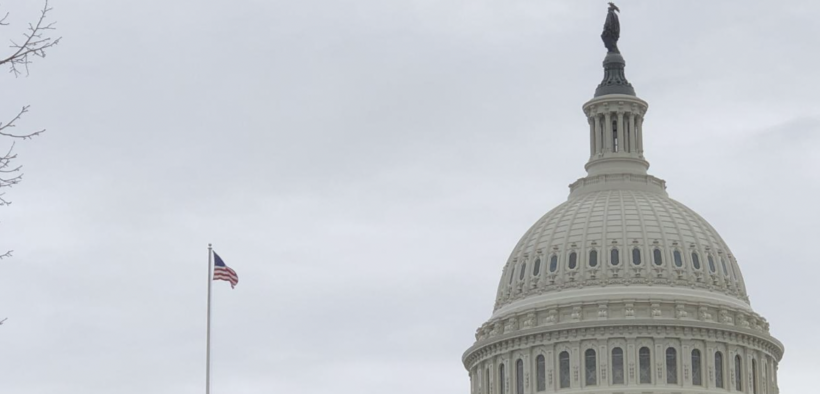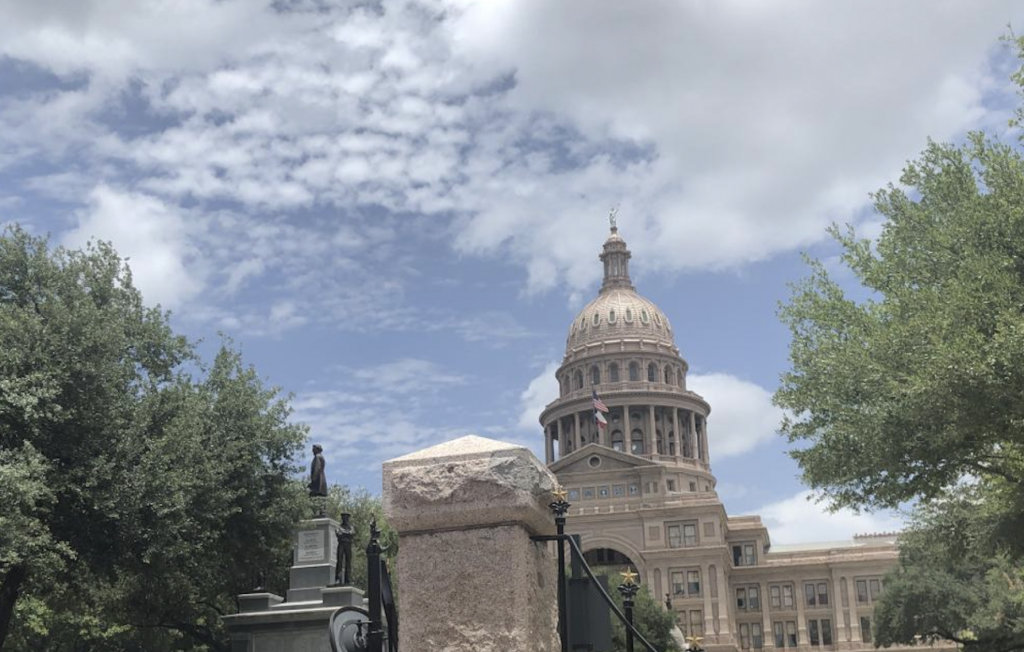Texas Executive Elections Gain Student Attention
Share


Photo by: Gerald Jones
The polarizing political atmosphere within Texas has begun to increase as the November 8th, 2022 general election approaches. Hundreds of candidates are competing for a variety of state offices in the Texas executive, legislative, and judicial branch. Voters now weigh their options for this November with both the eyes of Texas and the nation upon them as the state’s partisan leaning comes into question with recent national elections. Executive positions up for election this season include the Governor, Lieutenant Governor, Attorney General, and various others. While interest in national politics may have a great impact on students, state offices arguably have a more frequent impact. This has gained the attention of many students at Southwestern University.
For Governor of Texas, incumbent Greg Abbott (R) this will be in a race against Beto O’Rourke (D), with other party nominees including Mark Tippetts (L) and Delilah Barrios (G). In 2018, Abbott defeated Valdez (D) by about thirteen percent, and aggregate polling from FiveThirtyEight and RealClearPolitics has Abbott about seven to nine percent ahead of O’Rourke at this point in time. The Governor’s race has gained particular attention as speculation about Abbott as a potential 2024 or 2028 presidential candidate has grown.
Abbott’s campaign focuses on property tax reform through restraining its growth by capping its revenue and requiring appraisal district directors to be locally-elected officials. Abbott also is campaigning on fostering economic development to create jobs for veterans and increasing options for veteran’s healthcare and legal services, combating sex and human trafficking and holding public officials accountable for sexual misconduct, securing the US-Mexico border with the Texas National Guard, providing better equipment for law enforcement, increasing access to quality pre-kindergarten education, and pro-life advocacy.
O’Rourke’s campaign focuses on increasing public school funding and raising teacher salaries, expanding Medicaid, weatherization of the Texas power grid, creating more legal pathways for migration into Texas, preventing discrimination against the LGBTQ community, implementing same-day voter registration, creating red-flag laws and repealing permitless carry for firearms, expanding benefits for veterans, raising the Texas minimum wage, lowering property taxes, legalizing marijuana, pro-choice advocacy, investing in clean energy jobs, and expanding the role of social workers in criminal justice reform measures.
For Lieutenant Governor of Texas, incumbent Dan Patrick (R) will be in a race against Mike Collier (D) and Shanna Steele (L). In 2018, Patrick defeated Collier by about five percent, and recent August polling from UT Tyler and the University of Houston and the Texas Southern University via YouGov, shows Patrick ahead by about six to eight percent. With many issues pertaining to public policy via legislation arising in Texas, the Lieutenant Governor serves as the most powerful position during the biennial legislative session.
Patrick’s campaign focuses on accomplishments the Senate, under his Presidency, made during the 87th Session, including: ERCOT reform, power grid stability, the Heartbeat Bill, the Abortion Ban Trigger, a statewide broadband plan, transparency in law enforcement, election integrity measures, state protections of political speech on social media, requiring the Star Spangled Banner be played at taxpayer funded major sports venues, requiring that local governments must secure voter approval before reducing or reallocating funding originally dedicate to law enforcement, banning the sale of citizen’s personal data by state agencies, banning Critical Race Theory in Texas schools, and constitutional carry for firearms. If re-elected he will continue to advocate for conservative legislative measures.
Collier, who attended Georgetown High School, is focusing his campaign on increasing public school funding, fixing the power grid, closing corporate property tax loopholes, pro-choice advocacy, fighting climate change, fighting for a living wage, and reforming the criminal justice system.
For Attorney General of Texas, incumbent Ken Paxton (R) will be in a race against Rochelle Garza (D) and Mark Ash (L). In 2018, Paxton won by about four percent against Justin Nelson (D), and recent polling from UT Tyler and the University of Houston and the Texas Southern University via YouGov, shows Paxton ahead by about two to three percent. With the possibility of Texas joining in further lawsuits against the Biden administration, the position of Attorney General and its legal capabilities, being the chief legal office in Texas, this race may prove to be the most tense of this Texas executive election cycle. During his term, Paxton has filed lawsuits against the Biden administration pertaining to abortion access, vaccine mandates, mask mandates, continuation of the US-Mexico border wall, and a variety of hot button issues. Notably, both Paxton and Garza faced contentious primary races, where Paxton went on to win against George P. Bush, and Garza won against Joe Jaworski. Furthermore, Paxton has been under indictment for state securities fraud charges relating to activities prior to taking office since 2015. In 2020, assistants in Paxton’s office accused him of bribery, abuse of office, and other crimes.
Paxton’s campaign focuses on preserving the constitution, securing the US-Mexico border, protecting the sanctity of life, protecting the Second Amendment, defending Voter ID requirements, guarding religious freedom, ensuring state sovereignty, standing with law enforcement, keeping Texas jobs, and protecting taxpayers.
Garza’s campaign focuses on expanding healthcare access, protecting civil rights and consumers, legalizing cannabis, and how immigration is crucial to Texan growth as diversity is our strength.
While the positions of Governor and Lieutenant Governor are likely or safe for the Republican nominees, Paxton faces a closer campaign this election. The impact that state offices have arguably can have more impact on quality of life than the federal government in many key areas, which is why understanding the candidates and issues of this election season is important. The policies taken by the executive, legislative, and actions taken in the judicial branch will have relevance on our society and repercussions for college students. This is what warrants the important consideration of these candidates prior to November for Southwestern students.
